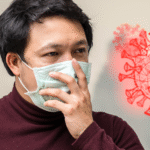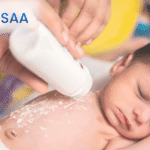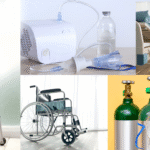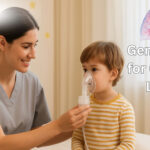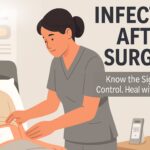
We are all familiar with Swine Flu, which is scientifically recognized as H1N1 influenza, a communicable disease of the respiratory tract which will affect humans and can surge through communities rapidly if not diagnosed in a timely manner. It is important to know more about the symptoms of swine flu, the modes by which it spreads, and when to seek treatment. It is especially important when seasonal outbreaks are likely. This guide will help you identify warning signs, support your family in their recovery, and act quickly in serious situations to limit the complications of the swine flu.
What Is Swine Flu?
The swine flu was originally transmitted from pigs to humans, but it is now fully adapted to humans. It spreads primarily as respiratory droplets droplets are produced when an infected person sneezes, coughs, or talks. While the majority of cases are mild and treatable at home, some groups of people are at greater risk of severe consequences of the infection, such as children, the elderly, pregnant women, and those suffering from chronic disease.
Common Swine Flu Symptoms in Humans
Detecting it early saves lives and can prompt action to minimize the spread. Here are the leading symptoms of swine flu, which are typically similar to seasonal flu:
- High fever (100°F and above)
- Dry cough
- Sore throat
- Runny or stuffy nose
- Body aches and headache
- Fatigue and weakness
- Chills and sweating
- Loss of appetite
These serious H1N1 symptoms likely signal that the infection is aggravated and possibly progressing to pneumonia or respiratory failure. Medical assistance should be immediately sought at this point.
How Does Swine Flu Spread?
- Human to human transmission through droplets
- Touching contaminated surfaces and then touching nose, eyes, or mouth
- Close contact in crowded places, offices, or public transport
Swine flu is not transmitted by eating pork or any pig-related food products. This is a common myth.
Swine Flu Pandemic Insight
The swine flu pandemic of 2009 was a major international health crisis by affecting millions of people in the world. While vaccines and more awareness have made the disease manageable in modern times, the virus is still circulating and causing outbreaks in the world. For this reason, we need to know how to identify the symptoms and how to avoid the illness.
Understanding the H1N1 Vaccine
The H1N1 flu vaccine is the best way to prevent the flu caused by the H1N1 influenza virus. The vaccine can help your body’s immune system develop protection against the illness.
Who Should Take the Vaccine?
- Children (6 months and older)
- Elderly above 60 years
- Pregnant women
- People with diabetes, asthma, heart disease
- Healthcare workers
Benefits:
- Reduces risk of severe infection
- Prevents hospitalization
- Helps control community spread
Swine Flu Treatment Options
Most cases of swine flu should be managed at home with supportive care, however, if you do receive a laboratory-confirmed case of swine flu, your healthcare professional may prescribe antiviral medications.
Common Treatments:
- Antiviral drugs (Oseltamivir/Tamiflu) – work best when taken within 48 hours of symptom onset
- Fever reducers and pain relievers
- Hydration and rest
Home Care for Patient:
- Keep the patient in a well-ventilated room
- Use separate utensils, towels, and bedding
- Encourage fluid intake (water, soups, ORS)
- Monitor temperature and breathing regularly
- Use a mask when around others
If the patient’s condition worsens or they experience breathing difficulty, medical intervention is essential.
Prevention: How to Protect Yourself and Your Family
Preventing swine flu actually starts with some basic, everyday habits that can greatly lessen your risk of being infected. First, practice good hand hygiene; wash your hands often with soap and water (for at least 20 seconds), especially after being in a public space and touching surfaces. Wear a face mask in crowded places or when around someone showing flu-like symptoms, as this helps mitigate the spread of respiratory droplets.
Eat a healthy diet, especially full of vitamins, antioxidants, and foods high in vitamin C, to enhance your immune system and to prepare your body to combat infections. Avoiding close contact with people who are infected is also key. If someone in your household is sick, keep them in a separate room and refrain from touching them and maintaining close contact until their recovery.
The most effective way to prevent swine flu is through vaccination. If you are able and receive the H1N1 seasonal flu vaccine yearly, this will provide strong protection against swine flu and lessens the risk of developing severe disease or other complications.
By combining these preventative strategies, including hygiene, mask wearing, maintaining good nutrition, avoiding close contact with infected individuals, and vaccination, you will greatly reduce your risk of contracting the illness of swine flu, while also keeping your family safe.
When to Act Immediately
You should seek medical attention if you notice any of the following:
- Rapid breathing or difficulty breathing
- Chest pain
- Persistent fever lasting more than 3 days
- Blood in mucus
- Inability to eat or drink
- Symptoms worsening instead of improving
Early treatment helps prevent complications such as pneumonia and respiratory failure.
Natural & Home Remedies (Supportive Only)
While these do not cure swine flu, they help with symptom relief:
- Steam inhalation to ease nasal congestion
- Warm water with honey and lemon for sore throat
- Turmeric milk to boost immunity
- Adequate rest and hydration
Always consult your doctor before trying home remedies alongside medication.
Recovery & Post-Flu Care
After recovering from H1N1 influenza:
- Continue wearing a mask for a few days
- Avoid crowded places
- Gradually return to daily activities
- Strengthen your lungs with breathing exercises
- Complete the full course of prescribed antiviral medication
Final Thoughts: Stay Informed, Stay Prepared
Recognizing the symptoms of swine flu promptly and acting on preventive measures can mean the difference in saving lives. The H1N1 vaccine is essential to prevent more serious disease, but there are also proper hygienic measures, and boosting immunity, that are equally important.
To conclude, swine flu symptoms should never be taken lightly. Taking action by getting vaccinated timely, being informed, and acting responsibly can help protect not just your well-being but to the health of your community at large.
